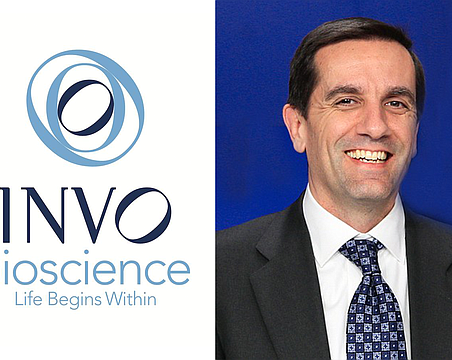Out of Order
By Francis X. Gilpin
Associate Editor
For state Rep. Kevin C. Ambler, the final straw was a bizarre inquiry into Hillsborough Circuit Judge Gregory P. Holder's scholarship in the field of military history.
The Republican legislator from Lutz says the state Judicial Qualifications Commission is in need of overhaul.
Although state judges spend their professional lives trying to adhere to rules, statutes and case law, Florida's system of disciplining jurists is surprisingly capricious, according to Ambler. "What's the old saying?" he asks rhetorically. "It's the cobbler's children who have no shoes."
Within the next week, Ambler expects to deliver a blueprint for JQC reform to Florida House Speaker Allan G. Bense. Ambler says he will ask the Panama City Republican to create a select committee to study the JQC. The select committee would hold hearings around the state and draft legislation to change the JQC, which the Legislature could take up next year.
Ambler, a trial lawyer, says he will request that Bense appoint him to chair the select committee.
Relations between Florida's judges and lawmakers, particularly those in the House, haven't been all that cordial in recent years. But Ambler doesn't expect much opposition from the judiciary to doing something about the JQC.
Ambler says he has received numerous communications, including some from judges who wish to remain anonymous, urging the Legislature to examine the JQC.
"It's all about due process," Ambler says of the commission. "Whether it's true or not, right now I can safely say to you, from the number of phone calls that I've gotten and e-mails and so forth, that there is an absolute justified perception among the public that it is operated like a Star Chamber."
JQC critics start with the recently completed examination of Holder.
The JQC operates two panels during the course of reviewing complaints against judges. A probable-cause panel determines in secret whether the complaint is valid. If probable cause is found, a second investigative panel sits in judgment of the judge. After a public hearing, the investigative panel submits to the Florida Supreme Court its findings and, if a complaint is upheld, a recommendation for punishment.
A probable-cause panel brought Holder up on charges that the Hillsborough judge plagiarized a research paper he wrote on the Allied bombing campaign in Europe during World War II to win a promotion to colonel in the U.S. Air Force Reserve. Following a six-day public hearing in June, however, an investigative panel unanimously exonerated Holder.
Ambler says there were a number of worrisome aspects to the JQC's prosecution of Holder, who confirmed during public testimony that he was an informant for a Federal Bureau of Investigation probe of possible corruption at the Tampa courthouse.
Last year, Holder's lawyers tried unsuccessfully to disqualify four of the investigative panel members who heard the judge's case. That foursome served on an earlier panel that brought charges in a 2002 JQC case against Holder over alleged misstatements on an application for a federal judgeship.
The 2002 charges, later dismissed, concerned conversations that Holder had with, among others, JQC member James R. Wolf, a state appellate judge in Tallahassee, and former Hillsborough Chief Judge F. Dennis Alvarez. Holder has identified Alvarez as a target of the FBI probe in Tampa.
Holder's attorneys argued that the four panel members already had formed opinions about their client's credibility during the previous inquiry. The Holder motion to disqualify the foursome was denied as untimely and legally insufficient.
The ruling was signed by John P. Kuder, one of the panel members Holder wanted to have removed. Kuder, a circuit judge in Pensacola, couldn't be contacted for comment.
The JQC has been examining Holder since 2001, which Ambler says is entirely too long.
"Anytime you bring a judge up on charges, it is not simply that judge who is on trial. It is the entire public perception of the judiciary," says Ambler. "The process has to be expeditious."
During those four years for Holder, Ambler says, the JQC didn't take seriously other obvious ethical conflicts.
Wolf sat on the probable-cause panel that brought the 2002 charges against Holder, even though Wolf stood to be a witness against Holder during those proceedings. Court records show Wolf made an offer to Holder at the start of the probable-cause phase.
"If you want us not to take part or be in the room, there'll be no hard feelings, nothing thought of," Wolf is quoted in a transcript as telling Holder. "But we will leave at your request if you don't want us."
Holder replied that he had no objection to the involvement of Wolf and Tampa lawyer Thomas C. MacDonald Jr., the JQC's general counsel who also was poised to be an adversarial witness.
Ambler says Holder wasn't genuinely free to waive his privilege to exclude Wolf, given the circumstances of the offer.
"That sort of on-the-spot intimidation is unacceptable," says Ambler. "If a judge has played the role of an accuser, then they should be automatically recused from serving in the capacity on a probable-cause panel."
Wolf told the Gulf Coast Business Review that he couldn't comment because he hadn't seen Ambler's proposal. "I think I've been fair," Wolf adds.
Ambler says JQC rules should be more explicit about when a conflicted panel member needs to be eliminated from hearing a particular case.
The state representative, who serves on the House Judiciary Committee, acknowledges that he isn't a completely disinterested party when it comes to Holder and the JQC.
Ambler says he and Holder are old friends. They worked together at MacDill Air Force Base in Tampa as judge advocates in the Reserve. "I have the highest respect for him, professionally and personally," Ambler says of Holder.
Due to the friendship, Ambler says, he felt it appropriate to delay his correspondence to Bense until after the JQC had dispensed with the Holder matters.
Towson Fraser, a spokesman for Bense, didn't return a call before deadline. Brooke Kennerly, the JQC's executive director, was unaware of Ambler's initiative. "Well, that will be very interesting," Kennerly told the Review.
Kennerly wonders if Ambler must put before voters any substantive changes to the JQC, which is a creature of the Florida Constitution. Ambler says he thinks the Legislature can enact changes without a statewide referendum on a constitutional amendment.
JQC panelists and staffers are willing to listen to any legislator with issues, Kennerly says. "If a representative has some concerns, we're going to sit down one-on-one with that person," she says.
Holder's attorneys contend the JQC cases against their client were initiated by lawyers whose questionable activities were chronicled by the judge for various agencies of the U.S. Department of Justice. Ambler didn't suggest any of his own theories about why the JQC came after Holder twice in four years. But the legislator thinks the JQC needs to install magistrates, who are independent of the probable-cause and investigative panels, to act on motions. Ambler says Holder's legal counsel made several objections to the JQC panels that were never ruled upon.
"Essentially, inaction becomes itself its own ruling," says Ambler. "We can't be certain that the outcome wasn't preordained by manipulation of the process itself, and that's a problem."
The JQC's reputation in the Bay area was earlier tarnished by the commission's perceived slow and mild reaction to the drunken escapades of Charles W. Cope, a circuit judge for Pasco and Pinellas counties who retired from the bench on his own last year.
Ambler says public confidence in the JQC has diminished in the wake of the Holder and Cope cases.
"It's all a bunch of good ol' boys. The good ones are thrown off, and the bad ones are kept and it's all who you know," he says. "That's what you hear out in the public forums when you hear people chit-chatting about it. We have an obligation to fix it. I feel I have to step up to the plate and use my position to try to fix it."





